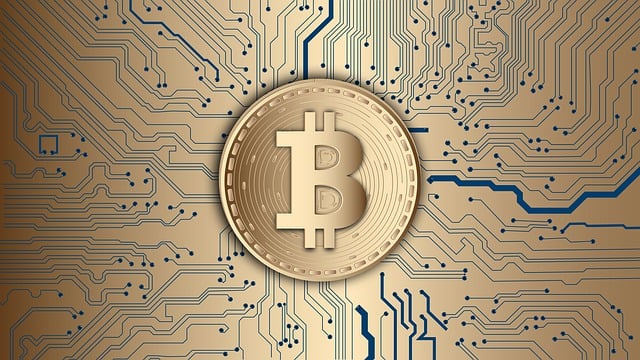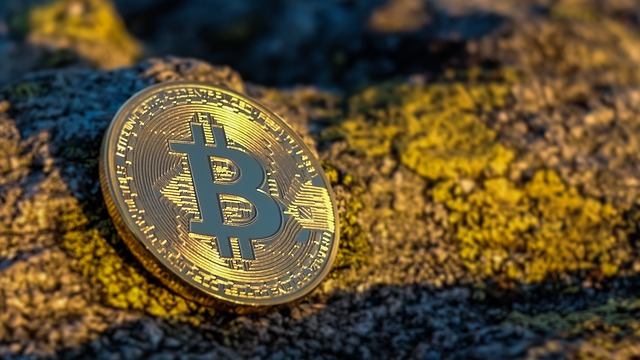Geopolitical tensions significantly impact cryptocurrency markets, causing volatility and value fluctuations due to investor fear and flight to safer assets. Regional events can have global effects, with political rivalries and government interventions complicating crypto legitimacy and adoption. Investors must stay informed about global developments to effectively navigate these geopolitical impacts, diversifying investments and adopting a long-term perspective for risk mitigation and growth opportunities.
In today’s interconnected world, geopolitics significantly influences financial markets, and cryptocurrency is no exception. This article explores how geopolitical tensions impact on crypto, delving into specific cases where international disagreements have affected digital assets. We’ll examine strategies for investors to navigate uncertainty during turbulent times, providing insights crucial for understanding and mitigating the ripple effects of global political landscapes on this burgeoning sector.
- Understanding Crypto's Vulnerability to Geopolitical Tensions
- The Ripple Effect: How Global Disagreements Affect Digital Assets
- Navigating the Uncertainty: Strategies for Investors in a Turbulent Market
Understanding Crypto's Vulnerability to Geopolitical Tensions

The world of cryptocurrency, though innovative and decentralized, is not immune to the complexities of geopolitics. Geopolitical tensions between nations can significantly impact the crypto market, often leading to volatility and shifts in digital currency values. These tensions may arise from various factors such as trade disputes, political rivalries, or differing regulatory approaches among countries. When geopolitical unrest occurs, investors tend to seek safer assets, often driving a flight to quality in traditional currencies like USD or JPY, which can weaken digital currencies.
Crypto’s global nature means that its performance in one region can rapidly affect it worldwide. For instance, heightened political tensions between major economic powers can cause investor apprehension, leading to significant sell-offs and price drops. Moreover, government interventions, such as bans or strict regulations, can abruptly change the landscape for cryptocurrencies, impacting their legitimacy and adoption rates across different countries. As a result, crypto enthusiasts and investors must stay abreast of global events and their potential implications on digital assets.
The Ripple Effect: How Global Disagreements Affect Digital Assets

Global geopolitics and political disagreements can have a profound ripple effect on digital assets, particularly cryptocurrencies. With the decentralized nature of many digital assets, they often become caught in the crossfire of rising tensions between nations. For example, heightened trade disputes or sanctions can disrupt global financial systems, leading to volatility in crypto markets. Investors may flee riskier assets during such periods, causing price swings and creating uncertainty for cryptocurrency holders.
The impact extends beyond economic boundaries; regulatory changes initiated by powerful nations can set precedents that influence the entire digital asset ecosystem. As geopolitical tensions rise, governments may implement stricter controls on cross-border transactions involving cryptocurrencies, potentially hindering global trade and investment flows. These actions can lead to fragmented markets and pose challenges for blockchain technology’s promise of a unified, borderless financial system.
Navigating the Uncertainty: Strategies for Investors in a Turbulent Market

In today’s volatile market, investors face a unique challenge: navigating uncertainty amidst heightened geopolitical tensions. The ripple effects of global conflicts often spill over into financial realms, particularly in the cryptocurrency space. As crypto markets are known for their sensitivity to news and events worldwide, understanding these dynamic relationships is crucial for informed decision-making. Investors must stay abreast of breaking developments to anticipate potential price fluctuations and make strategic choices.
One key strategy involves diversifying investments across different assets, including traditional stocks, bonds, and alternative assets like cryptocurrencies. While the crypto market may exhibit heightened volatility during turbulent times, it can also present opportunities for growth. Additionally, investors should consider adopting a long-term perspective, focusing on fundamental analysis of underlying technologies rather than short-term market gyrations. By maintaining a disciplined approach, staying informed, and adapting strategies based on comprehensive research, investors can navigate these uncertain periods more effectively, potentially mitigating risks while capitalizing on emerging trends, especially those influenced by geopolitical dynamics, such as the impact of global tensions on crypto.
Geopolitical tensions significantly impact the volatility of cryptocurrency markets, with global disagreements leading to rapid fluctuations and uncertainty. As investors navigate these turbulent waters, adopting strategic approaches is essential for managing risk. By staying informed, diversifying portfolios, and considering alternative assets, investors can mitigate the effects of geopolitical tensions on their crypto holdings. Understanding the ripple effect of global events on digital assets is crucial for making informed decisions in this dynamic market.
